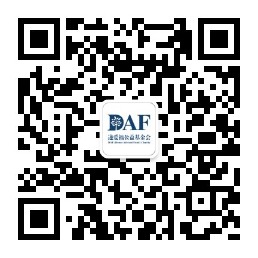Recently, the DAF Family Legacy Office of the (Beijing Normal University) China Philanthropy Research Institute (the ‘DAF Office’, official website: https://www.DAF-familylegacy.org.cn/) was officially established in Beijing, with the China DAF (Donor Advised Fund) Charity (the ‘DAF Charity’) as the donor and the (Beijing Normal University) China Philanthropy Research Institute (the ‘CPRI’) as the sponsor. Prof. Wang Zhenyao, Dean of the CPRI, assumes the Chairman of the Board of the DAF Office.
Together with Dean Wang Zhenyao, Prof. Huang Haoming, the Distinguished Professor of the CPRI and Mr. Liu Borong, the Head of the Private Equity and Asset Management Department of the Beijing Zhong Lun Law Firm are the other two founders of the DAF Office. The non-profit status enables the DAF Office to become the very first family legacy office dedicated to the public good through knowledge service and practice sharing.
The DAF Office aims to become a world-leading academy in the family legacy industry. The learners include qualified and/or certificated professionals in the fields of finance, wealth management, legal practice, accounting, taxation, asset evaluation, trust and estate planning, and notary. Those who need to acquire knowledge and practice in running family businesses or may be interested in family legacy, social finance, or implementing donor-advised funds (DAF) for charitable purposes etc. are also welcomed to be partakers of the learning community.
The DAF Office adopts the vision of ‘Wisdom for wealth that lasts generations’ with the mission of ‘Creating a knowledge service platform of family legacy that fosters the construction of the family legacy ecosystem’. To pursue this great vision, the DAF Office takes ‘Accountability’, ‘Professionalism’, ‘Innovation’, and ‘Sharing’ as its primary values when carrying out its mission.
Fields of Work
The DAF Office advocates transparent operations and provides a set of development models for peer organizations through open-handed sharing of the business documents on its official website. The DAF Office, together with the DAF Charity (official website: https://www.DAF-charity.org.cn/) and the China DAF Forum (the ‘DAF Forum’, official website: http://www.DAF-forum.org.cn) and other participants in the industry, is determined through continuous and persistent efforts to promote the construction of the DAF industry. It endeavors to build up the DAF Ecosystem comprised of charitable training courses, charitable asset allocation, charitable services, charitable communication activities and charitable information disclosure process etc.
As the think tank, developer, and practice base of the DAF Ecosystem, the learners of the DAF Office may become qualified donors of the DAF Charity. Being the treasury of the DAF Ecosystem, the DAF Charity provides a practical platform for donors to implement its strategic philanthropy. The DAF Forum, on the other hand, is the communication and promotion platform for operating activities of the DAF Ecosystem, which will promote communications amongst the learners of the DAF Office and qualified donors of the DAF Charity.
The DAF Office empowers its participants through the DAF Ecosystem, and, subsequently, the participants may seek development paths or potential cooperation opportunities by using the resources that have been offered in various platforms of the DAF Ecosystem.
The main fields of work of the DAF Office include:
1. Research and Training Relating to DAF
The DAF Office will start with DAF research and training to popularize the use of DAF as a convenient tool to make charitable contributions as an increasingly important part of a donor’s overall asset allocation strategy.
2. Research and Training Relating to Social Finance
The DAF Office will promote research relating to social finance. The DAF Office will advocate the concept of social finance by carrying out in-depth research on relevant laws, policies, and case studies domestically and internationally. It will also lead commercial capital into the field of social finance through carrying out relevant training on social finance. The ultimate purpose is to achieve sustainable, competitive, and standardized development of the charitable sector.
3. Research and Training Relating to Family Legacy
Acting as the think tank, developer and practical training center of the DAF Ecosystem, the DAF Office is committed to the research and training associated with family legacy, including course R&D and curriculum design, in order to enhance communication and practice sharing among practitioners in the field of family legacy.
Basic Principles
1. Professionalism
The DAF Office will share research results and provide educational courses to learners. The primary activity of the DAF Office will include the publication of information and interpretations on relevant laws and policies to reflect changes in relevant market research on hot issues in family legacy, social finance, donor-advised funds (DAF) as well as case studies.
2. Practicality
In addition to professionalism, the DAF Office will focus on developing and designing a series of courses with content that are practical, useful and applicable so as to equip the learners with the problem-solving ability through the improvement of their professional skills. In alignment with peer institutions, the DAF Office encourages learners to apply their knowledge into practices such as guiding clients to pursue strategic philanthropy through asset contribution into their charitable accounts. Also, learners may create case reports to share their experiences in promoting development of social finance and/or strategic philanthropy at large.
3. Internationalization
The DAF Office will establish strategic partnership relations with international institutions, including the adoption of best practices and an innovative mindset. It is expected that an international charitable platform will be built up through prescribed endeavors.
Main Projects
The services provided by the DAF Office will not merely target professionals in the fields of finance, taxation and law but will also include those whose passion is in philanthropy and also practice in private business, mass media, education and training, government as well as other sectors.
By sticking to the concept of “enlightenment before transmission”, the DAF Office has launched the DAF Strategic Philanthropy Training (SPT) Project and the DAF-Pro Bono Charitable Training Project along with relevant parties so as to provide knowledge services to professionals who either wish to acquire similar knowledge in running their businesses or are interested in family legacy, social finance or donor-advised fund (DAF) through the DAF Family Legacy Online Learning Platform.
1. The DAF Strategic Philanthropy Training (SPT) Project
The DAF Strategic Philanthropy Training (SPT) Project (the ‘DAF-SPT Project’) is jointly initiated by the DAF Office and the DAF Charity. Strategic philanthropy planning and relevant courses constitute primary content of the training project. The DAF-SPT Project, on the other hand, targets capacity-building where professionals are equipped with relevant knowledge and skills so as to assist their clients in achieving strategic philanthropy planning, fulfill social responsibilities and create social values.
The DAF-SPT Project will combine excellent resources in the field of family strategic philanthropy in a non-profit format, through re-producing, adapting, and promoting existing video/audio courses. The purpose is to advocate the concept of family strategic philanthropy and promote development of family philanthropy affairs through various forms of charitable training and activities.
2. The DAF-Pro Bono Charitable Training Project
The DAF-Pro Bono Charitable Training Project (the “DAF-Pro Bono Project”) is also initiated by the DAF Office and the DAF Charity. The courses primarily consist of the DAF concept and function from a Pro Bono perspective. This project aims to encourage professionals to provide pro bono services, advocate the building of accountability through professionalism and help them to fulfill their social responsibilities.
Knowledge Services
1. Product Strategy Based on Knowledge Services
The products of the DAF Office focus on ‘knowledge service’. Unlike the traditional concept of ‘paying for knowledge’, the ‘knowledge service’ model is centered on learners receiving services, focusing on types of services provided to learners and problems being solved. ‘Services’ are the future direction and essence of the industry. In accordance with the demand for knowledge services, the DAF Office may broaden the solution-oriented courses to organize and expand groups study for mutual assistance purpose. New forms of knowledge services may be created during the interaction.
To meet the needs of learners striving to gain knowledge and consolidate perceived effectiveness while building a sense of belonging, the Product Ecology of the DAF Office includes Resource-based Products, Activity-based Products and Honorable Products. In parallel, Course Products and Community Products form a learning community and may be mutually benefited through a closed business loop of knowledge services.
In terms of Product Strategy, the DAF Office, focusing on providing knowledge services to learners, has developed strategies including ‘Progressive Innovation through Disassembling the Goals’, ‘A Closed Business Loop of Knowledge Services’, ‘Strict Quality Control for High-quality Products’, ‘Empower Learners to Address Challenges’ and ‘Satisfy the Learners’ Needs for Object-Oriented Productization’.
2. Course Service Teams
In order to meet the needs of different courses, the DAF Office will establish Course Service Teams specifically for different courses. Each Course Service Team comprises the Course Teacher, relevant parties designated or invited by the Course Teacher, the Director and Members of the Course Service Team assigned by the Administrative Office of the DAF Office and the Course Tutor. The Course Service Team Director takes charge of the Course Service Team in assisting the teacher with knowledge production through fulfilling his/her duty as the Director. By doing so, the learners may access professional knowledge services on a continuous basis.
The DAF Office, through its professional quality control capabilities and knowledge service technology, assists teachers to ensure their course quality in the entire process of course production, including project approval, course content planning, preparation and review of course manuscripts, course recording, and follow-up services of teachers. For example, the Course Service Team may help them change their angle of view, explore additional information, highlight personal styles, promote stable production, and assist them to extract the knowledge, experience and methods stored in the teacher’s mind and summarize the highlighted content that is of unique value to learners.
The DAF Office, through production of ‘courses’, provides learners with exclusive know-how, skills and perceptions in the field of philanthropy, family legacy, social finance, donor-advised fund (DAF) and similar subjects. Meanwhile, the DAF Office provides multidisciplinary learning ‘community’ products with the goal of fostering positive alumni relationships among learners, expanding their social network and empowering them from multiple perspectives and levels.
For purpose of management and operation of the knowledge services, the DAF Office has formulated the Quality Control Guide of the DAF Office (Version 1.0) (the ‘Quality Control Guide’). It is bilingual with a total capacity of nearly 100,000 words. The Quality Control Guide is the work manual for knowledge services that the DAF Office is purporting to provide. By setting up standards for knowledge services, it serves as an operational guide for quality control of course products. The Quality Control Guide will empower those involved in the DAF Ecosystem, including staff, teachers, learners, donors, service providers, and/or third parties, through standardization and uniformity of products.
Looking ahead, the DAF Office embraces the vision of popularizing excellent training resources through contributing expertise of knowledge services with the joint participation of the role players, domestically and internationally, in the DAF Ecosystem. Adhering to the development concept of ‘focusing on the long-term’, ‘obsessing over learners, and ‘expanding business infrastructure’, the goal of the DAF Office and its domestic or overseas partners is to establish a world-leading academy in family legacy through introducing excellent and professional resources globally, thus promoting the development of public welfare in family legacy, social finance and donor-advised fund (DAF), etc.
Introduction to the Board of Directors, the Advisory Board and the Administrative Office
Board of Directors. In order to facilitate the decision-making process of various affairs of the DAF Office and carry out risk control management on the internal operation of the DAF Office, the DAF Office establishes a Board of Directors. The founding members of the Board of Directors of the DAF Office are as follows:
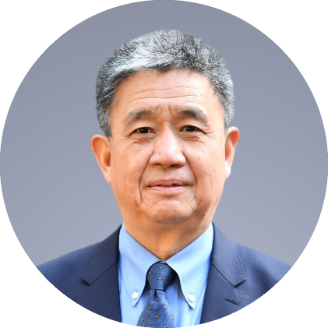
Prof. Wang Zhenyao
Chairman
Prof. Wang Zhenyao, Ph.D., Doctoral Supervisor, is Dean of the (Beijing Normal University) China Philanthropy Research Institute, Dean of the Asia Academy of Philanthropy, and Founding President of China Global Philanthropy Institute. Prof. Wang Zhenyao holds an MPA degree, Harvard University and a Ph.D. from Peking University. He was awarded the 14th ‘Compassion Award’ in 2019.
Prof. Wang previously worked for over 22 years at Ministry of Civil Affairs of the People's Republic of China where he was instrumental in launching several renowned national policies, including direct village elections and the country’s urban/rural minimum welfare social safety net system. Following the devastating Wenchuan earthquake, he established the National Natural Disaster Response System, a four-tiered mechanism for coordinated emergency response. While at Ministry of Civil Affairs of the People's Republic of China, Prof. Wang also focused on expanding social security benefits to the country’s most vulnerable, reforming the national welfare system to provide allowances and greater support to groups such as orphans and senior citizens.
Prof. Wang also helms the (Beijing Normal University) China Philanthropy Research Institute (CPRI), which he founded in June 2010. Under Prof. Wang’s leadership, CPRI has become a leading philanthropy think-tank, which drives national discourse on China’s social services and charitable sector. In addition to its research, CPRI also provides professional philanthropy consulting services and has completed a number of influential projects related to charity law and policy reform, child welfare, and senior citizen service systems reform.
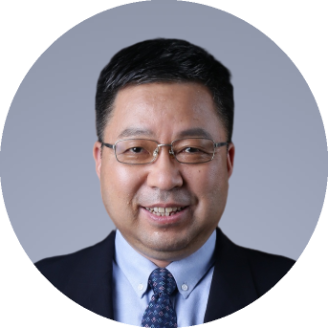
Huang Haoming
Vice Chairman
Prof. Huang Haoming is the Honorary Chairman of the China Association for NGO Cooperation, the Distinguished Professor of the (Beijing Normal University) China Philanthropy Research Institute, the Executive Dean of the Asia Academy of Philanthropy and the Distinguished Professor of China Global Philanthropy Institute (CGPI). He was previously the Vice President and Acting President of the China Global Philanthropy Institute (CGPI). Prof. Huang earned a Ph.D. degree at Tianjin University and an MPA degree at Carnegie Mellon University. Prof. Huang is also a part-time researcher at the Institute of Philanthropy, Tsinghua University, and a member of the Advisory Board of the Centre for Health Reform and Innovation, University of Leeds, UK. He is also Director of the Asian Civil Society Organization Coalition for Agrarian Reform and Rural Development, Chairman of the Committee of Experts of China and UNDP Platform for Capacity Building in South-South Cooperation, member of China National Steering Committee of UNDP GEF/SGP Project, Director of United Nations Association of China, council member of China Charity Alliance, vice president of Beijing Charity Association, Vice Chairman of Beijing Sicheng Community Charity Foundation, Director of Amity Foundation, Director of Yili Public Welfare Foundation, Director of Rende Foundation, Director of Lantu Foundation and consultant of China Foundation for Poverty Alleviation, etc.
For more than 30 years, Prof. Huang has been engaged in research on the cultivation and development of social organizations, international exchange of social organizations, research on the law of cooperation between public welfare organizations and enterprises and promoting the research and practice of the strategy of Chinese social organizations going global. His main work includes ‘Social Organizations Going Global’, and ‘Strategic Management of Nonprofit Organizations'. Prof. Huang also has participated in the edition of ‘Exploration and Practice of Social Organization Innovation Mechanisms’, ‘Case Collection of Reform and Innovation of Science and Technology Associations’, ‘Guide to Promoting Environmental Health Policies of Civil Society Organizations’, ‘Operation Guide For Non-governmental Organizations’, ‘Multinational Corporations and Public Welfare Undertakings’, ‘Exchanges and Cooperation Between Chinese and Overseas Non-governmental Organizations’, ‘International NGO Cooperation Practice and Management’ and ‘China, Europe and South America CSO Dialogue Follow-up Casebook (English version)’ as chief editor, etc.
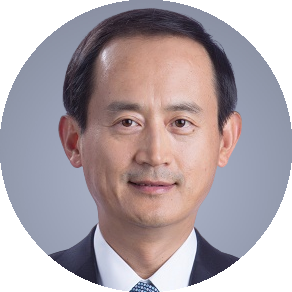
Zhang Xuebing
Director
Mr. Zhang Xuebing, Director of Beijing Zhonglun Law Firm, Chairman of Beijing Legal Aid Foundation, Chief Supervisor of Beijing Charity Federation, Director of China Guanghua Foundation. Former Standing Committee Member of All-China Youth Federation, Vice Chairman of China’s State Organ Youth Federation, President of Beijing Lawyers Association, Vice President of All China Lawyers Association, Member of the Standing Committee of the 14th Beijing Municipal People's Congress, and External Director of China Telecom Corporation Limited, Independent Director of Legend Holdings Corporation.
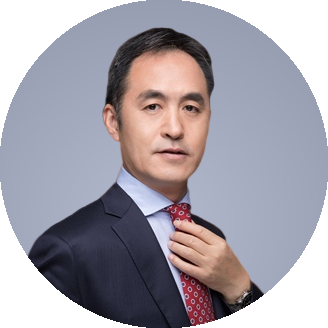
Li Xianming
Director
Mr. Li Xianming is a senior Partner at AllBright Law Offices in Shanghai and Beijing. Mr. Li is the Chairman of Society of Trust and Estate Practitioner (STEP), China Branch, an expert member of the China Trustee Association, member of the General Council of China Charity Alliance, Vice Chairman of the Charitable Trust Committee of China Charity Alliance, an Expert in the Qualification Accreditation of Enterprise Annuity Fund Management Institutions of the Ministry of Human Resources and Social Security, Member of the Expert Evaluation group of the Banking Financial Management Direct Financing Instrument of the CBRC.
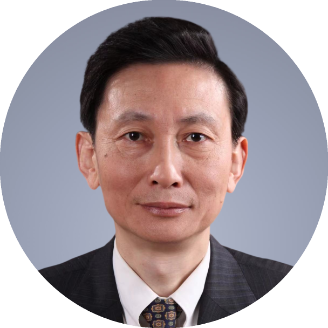
Dr. Wu Fangwei
Director
Mr. Wu Fangwei is the Deputy Dean of Shanghai Advanced Institute for the Financial Research and the Secretary-General of China Securitization Forum, holding a Master and Ph.D. degree from Chinese Academy of Fiscal Sciences.
After several years of serving in the national macro-economic management departments, Mr. Wu joined the financial institutions and had worked for 26 years, successively holding the positions of Deputy General Manager of the China Central Depository & Clearing Co., Ltd. (CCDC) and Vice President of China Credit Assets Registry & Exchange Co., Ltd. He has been actively involved in the cultivation and construction of China’s treasury bond market as well as promoting the transfer of Banking Credit Assets.
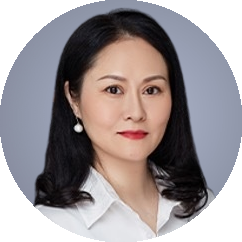
Dr. Leng Huiqing
Director
Dr. Leng Huiqing is currently the chairman of X Fund Management Co., Ltd. (under preparation). She graduated from Tsinghua University with a dual bachelor’s degree in engineering, master’s degree in management and PhD in economics. She was a visiting scholar at the Department of Economics of Harvard University. She was awarded senior economist. Dr. Leng is the executive Director of Tsinghua New Century Development Fund, industry mentor of Schwarzman Scholars of Tsinghua University, and undergraduate alumni mentor of the School of Economics and Management of Tsinghua University. She has served in China ExportandCredit Insurance Corporation, People’s Insurance Company of China, Shenzhen Century Xingyuan Co., Ltd. (a listed company on the Shenzhen Stock Exchange). She then served as Vice President and Secretary of the Board of Directors of Chengzhi Co., Ltd. (a listed company on the Shenzhen Stock Exchange), Chairman and Legal Representative of Huarong Fund Management Co., Ltd.

Jiang Yan
Director
Mrs. Jiang Yan, Assistant CEO, Head of Family Trust of AVIC Trust, Beijing. She is now the DBA Candidate at Peking University, Guanghua school of management. Mrs. Jiang Yan earned her master’s degree at London Business School and The PBC school of finance, Tsinghua University. She also has the CFA and FRM qualifications. Since joining AVIC Trust, she restructured the Family Trust business of the firm, made a market development plan and built up a new professional team of more than 20 people and achieved 500% growth in the year 2019-2020, in both AUM and number of Family Trust accounts. She also redesigned the operations and the information system to better support the fast growth of business and helped build up the KUNPENG Digital Platform and put all family trust services online in 2020. Mrs. Jiang Yan is also in charge of the charity trust planning of fortune families, making the charity trust platform for private bank customers of state-owned banks and actual controller of a listed company. She also participates in charity trust for rural vitalization and discussions of the Charity Law amendment.
Before joining AVIC, she was assistant CEO of ChangAn Trust, Beijing, in charge of Capital Market, Wealth Management, Family Trust & Charitable Trust. And she also worked in CITIGROUP, London and MERRILL LYNCH INTERNATIONAL as Vice President. She was a consultant in the start-up team for the Agricultural Bank of China (London).

Mao Wenting
Secretary of the Board of Directors
Ms. Mao Wenting serves as the Executive Secretary-General of China DAF (Donor Advised Fund) Charity. She holds both a BS and an MS degree in Accounting and Financial Management from Lancaster University in the UK. Before serving at the China Donor Advised Fund (DAF) Charity, where she gained in-depth knowledge about donor-advised funds, Ms. Mao worked at China Merchants Fund Management Co., Ltd., China Merchants Wealth Management Co., Ltd. and Ruihua Certified Public Accountants, volunteered internationally, and served at other charitable organizations.
Advisory Board. The DAF Office has set up an Advisory Board to provide advice and suggestions on its work.
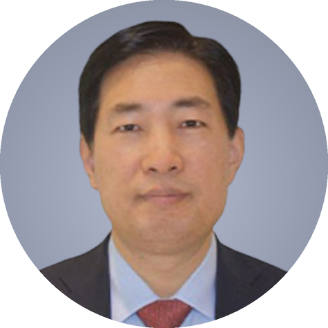
Liu Borong
Vice-Chairman of the Advisory Board
Mr. Liu Borong serves as Chairman of the Board of Directors of China DAF (Donor Advised Fund) Charity, head of the Private Equity and Asset Management Department of the Zhong Lun Law Firm, Chairman of the Executive Committee of the China Securitization Forum, External Appraisal Expert for the Asset Securitization Projects at both the Shanghai and Shenzhen Stock Exchanges, and has formerly served as the Deputy Chairman of the Zhong Lun Charity Foundation, special-term professor at the China Capital Markets Institute, commissioner of the Expert Committee of the China Development Bank, 7th Chairman of the Asset Securitization Committee of the Beijing Lawyers Association, as well as the 8th and 9th Chairman of the Trust Law Committee of the Beijing Lawyers Association.
2008-2017: Rated ‘Band 1’ lawyer for ten consecutive years by Chambers & Partners in Chambers Asia in the field of asset securitization in China and Asia. 2018-2022: Ranked as ‘Eminent Practitioner’ for five consecutive years by Chambers and Partners in Chambers Asia-Pacific 2018-2021.

Li Hongtao
Member of the Advisory Board
Mr Li Hongtao is the Secretary-General of the China DAF (Donor Advised Fund) Charity, former head of media program marketing of CCTV Social and Law Channel, and the former Director of China Radio and Television Legal Program Working Committee, with rich experience in media operation and brand promotion, and is expert in TV media operation management. Mr. Li has organized the planning and execution of TV media marketing activities of major brands and participated in the design and implementation of annual advertising bidding projects of CCTV Social and Law Channel and Program, familiar with various media reports and editing production process. He fully participated in and organized various major promotional events for the channel and its programs, including a large-scale promotional event for ‘Safe China’ (cooperating with the Central Political and Legal Committee for the safety construction), ‘The Power of the Rule of Law’ (a special program of the Gala Evening on December 4th), ‘Xiao Sa Exploration Meeting’ (a special program of the ‘Two Sessions’), ‘Green Bookmark Action’ (Special Program of the intellectual property on April 26th), ‘National Lawyers Competition’ (the Supreme Court), etc.
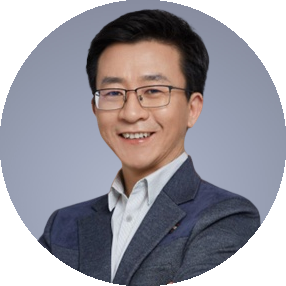
Dr. Guo Rui
Member of the Advisory Board
Dr. Guo Rui, Associate Professor at the Law School of Renmin University of China, S.J.D. from Harvard Law School. Dr. Guo’s study on corporate governance and corporate social responsibility has led to the publication of a monograph entitled "Morality, Law and the Corporation". He serves as a director of the China Securities Law Research Association, the director of the Center for Social Responsibility and Governance at the Institute of Law and Technology at Renmin University of China, and he is a fellow of the Harvard Law School Project on Disability. Dr. Guo is the Lead Expert for the Research Group on Ethics of Artificial Intelligence of the Artificial Intelligence Working Group, Standardization Administration of the People's Republic of China (SAC). He participated in the drafting of the first AI standardization white paper (published in 2018) and led the drafting of the AI Ethical Risk Research Report (published in May 2019 by Artificial Intelligence Working Group, SAC). Dr. Guo's monograph "Ethics and Governance of Artificial Intelligence" has been well received by the academic community and the public. He serves as a member of the Sub-Committee of Artificial Intelligence and Sub-Committee of User Interface, National Standardization Committee of Information Technology. He is a member of the Youth Council of the Future Forum.
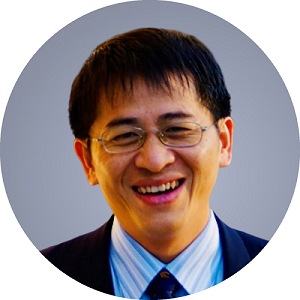
Dr. Song Yingquan
Member of the Advisory Board
Dr. Song Yingquan is an Associate Professor in the China Institute for Educational Finance Research (CIEFR), Peking University. He earned his Ph.D. in Economics of Education from the University of California at Berkeley. His research field is economics of education and education finance with a focus on financing of education for children from the underprivileged families. Particularly, his research topics include, but not limited to, the financing of early childhood education and care (ECCE) in China and education for children affected by parental migration. He has rich experience in policy impact evaluation studies using randomized controlled trials (RCT) and quasi-experimental design-based methods. Dr. Song has been serving as a principal investigator for various research projects sponsored by the Ministry of Finance (MOF) of China, Ministry of Education (MOE) of China, the World Bank, International Initiatives for Impact Evaluation (3IE), UNICEF, Save the Children, China Foundation for Poverty Alleviation (CFPA), China Development Research Foundation (CDRF) and many other governmental or non-governmental agencies. His work has appeared in Social Science Research, Journal of Development Economics, Economics of Education Review, Comparative Education Review, World Bank Economic Review, Journal of Comparative Economics, Economic Development and Cultural Change, The Lancet Regional Heath, China Economics Review, Peking University Education Review, and other peer-reviewed journals at home and abroad.
The Administrative Office. In order to facilitate the effective execution of general affairs, the DAF Office establishes the Administrative Office. The Administrative Office is primarily responsible for the general operation and management of the DAF Office and organizing and executing decisions of the Board of Directors.

Xue Wei
Secretary-General
Mr. Xue Wei is the Assistant Dean of China Philanthropy Research Institute and Vice Dean of the Asia Academy of Philanthropy. Mr. Xue Wei earned a Master’s degree from the Southwest University of Political Science and Law and a Bachelor’s degree from the China University of Political Science and Law, and was the Visiting Scholar at the Harvard Kennedy School (2017-2018).
Mr. Xue Wei served as the Head of the Administrative Office of the (Beijing Normal University) China Philanthropy Research Institute, Administration Director of China Global Philanthropy Institute and the Director of the Dean’s Office. He led the implementation of the internal management systems of the Administrative Office of the (Beijing Normal University) China Philanthropy Research Institute and China Global Philanthropy Institute. Since 2021, he has served as assistant dean of the China Philanthropy Research Institute. Now he is in charge of routine work of the DAF Family Legacy Office of the (Beijing Normal University) China Philanthropy Research Institute.

Wang Jing
Executive Secretary-General
Ms. Wang Jing was graduated from the Journalism Department of Beijing Broadcasting Institute (now Communication University of China). She has worked in Beijing Dentsu Advertising Co., Ltd. and Epson (China) Co., Ltd., and her work has always been centered on market communication related fields, involving integrated communication strategy formulation, media planning and effect evaluation, sponsorship cooperation and use of spokespersons, official website construction and optimization, graphic design management, brand visual communication specifications, VI and copyright management, publicity courseware production and course training, brand introduction publicity, media cooperation projects, etc. She has rich experience in market communication, is familiar with all aspects of project formulation and execution, and not only has the overall control ability but also firmly believes that details determine success or failure.

